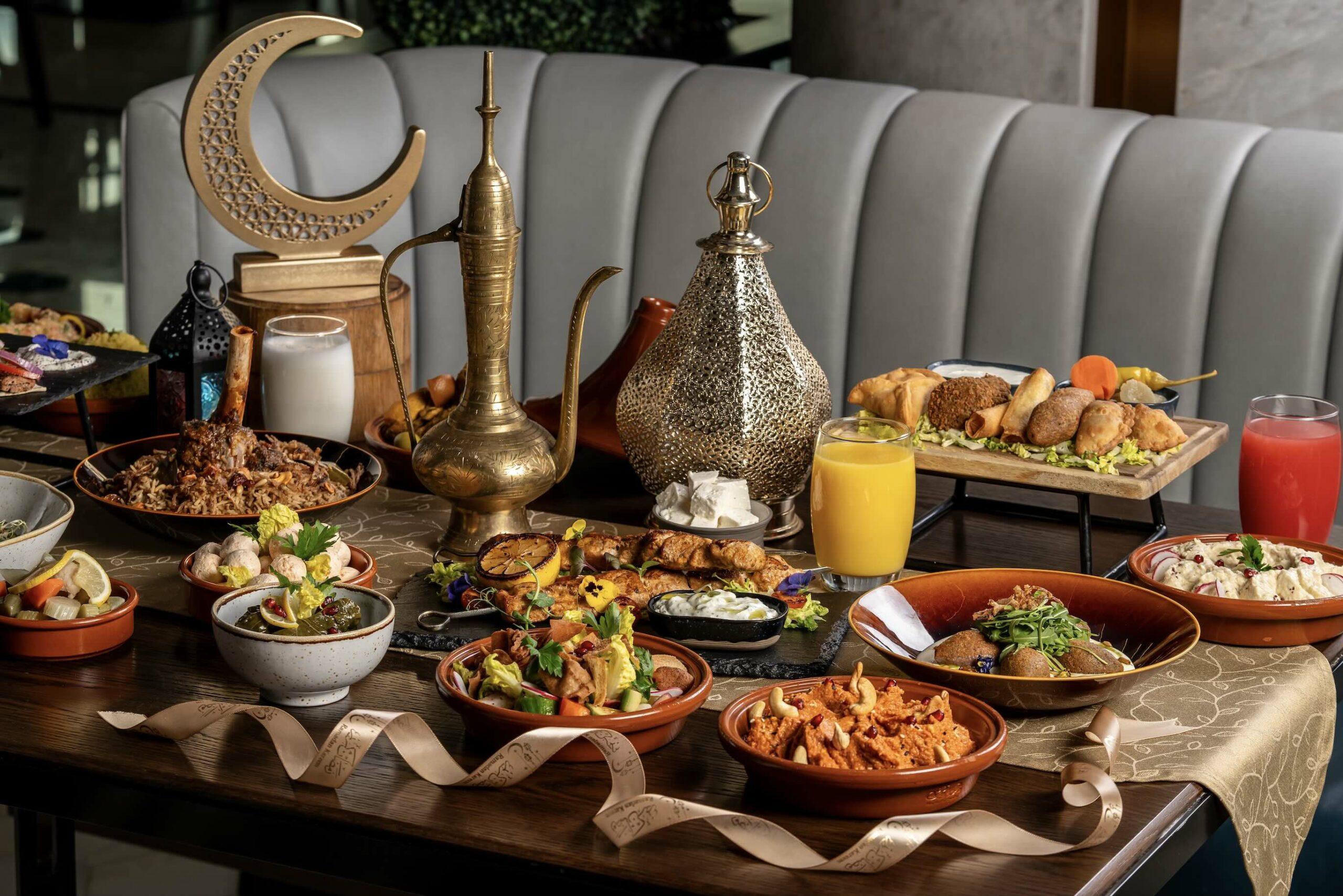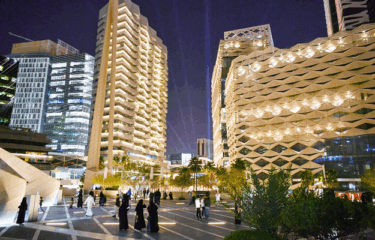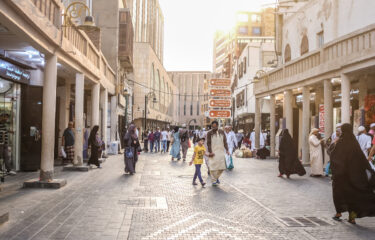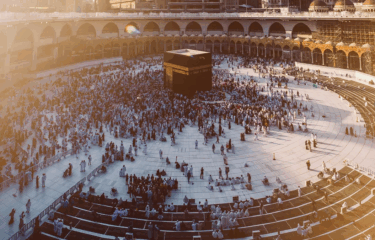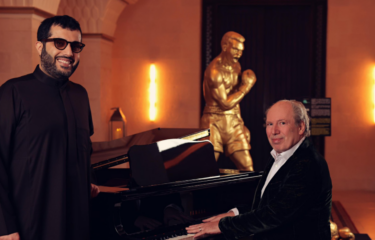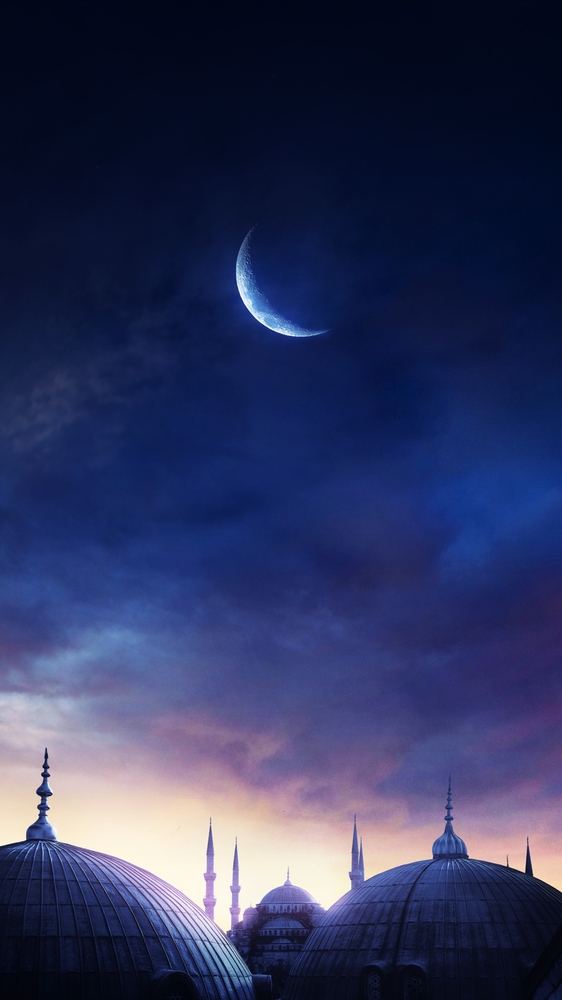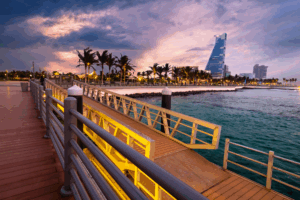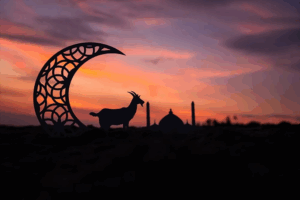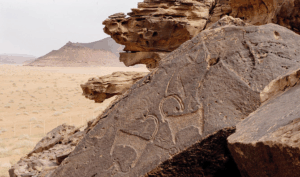There are places in the world where Ramadan is observed, and then there is Saudi Arabia; where Ramadan is lived, breathed, and ingrained in each soul.
As the crescent moon signals the arrival of the holiest month, the Kingdom transforms. The air hums with sacred whispers of prayer, the scent of oud, a delectable variety of sweet dates, and cardamom-laced coffee drifts through ancient souqs, and the golden glow of lanterns flickers against the backdrop of modern skylines and timeless minarets.
Ramadan here is not just a month, it is an experience that unfolds through faith, culture, and generosity, touching both the heart and soul of each Saudi.
For those longing to witness the Kingdom in its most radiant state, this is the time. Whether amid the grandeur of Riyadh’s lavish Iftar banquets, in the serenity of Mecca’s sacred silence, or beneath the starlit skies of AlUla’s tranquil desert, every moment carries a sense of wonder.
From shared meals to quiet contemplation, from bustling markets to peaceful mosques, Ramadan in Saudi Arabia is a journey that lingers long after the final day of fasting.
The Beauty of Ramadan Markets, Lights, Aromas, & Traditions
Across the Kingdom, traditional souqs come alive during Ramadan, offering a glimpse into Saudi Arabia’s rich heritage. These markets are a sensory experience brimming with vibrant colors, bustling with energy, and filled with the aroma of freshly ground spices, slow-roasted nuts, and honey-soaked sweets.
In Riyadh, Al-Zal Souq draws visitors into its maze of antique treasures, handcrafted silverware, and age-old textiles. The historic Souq Al-Alawi in Jeddah is a feast for the senses, where merchants offer saffron, frankincense, and intricate Arabic calligraphy pieces that hold echoes of the past.
In Al Ahsa, the legendary Qaisariah Souq brims with the finest dates, organic honey, and exotic spices, creating an atmosphere where every stall tells a story.
Beyond the goods on display, these markets are places of connection, where families prepare for the season. Children marvel at Ramadan lanterns, and visitors experience the generosity that defines Saudi culture.
A Feast for the Senses and the Soul
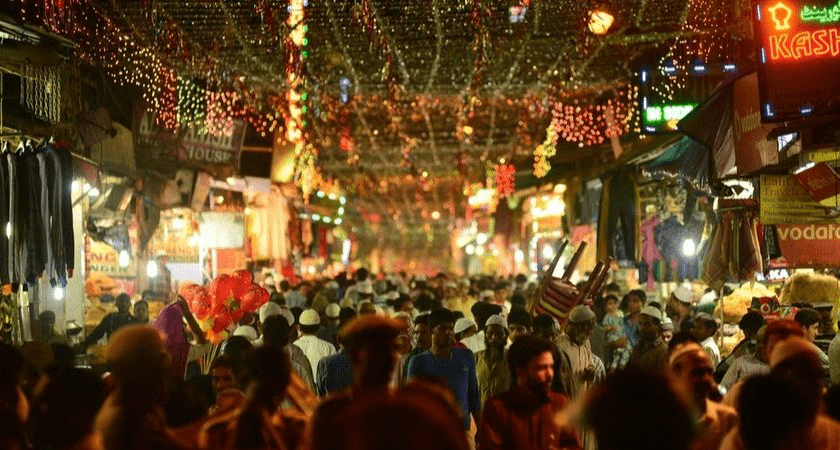
As the sun dips below the horizon and the call to Maghrib prayer fills the air. A moment of peace settles across the Kingdom. Iftar is not simply a meal. It is a tradition, a time to reflect, give thanks, and share in the blessings of the holy month.
In Riyadh, the city’s finest restaurants and hotels offer lavish Iftar buffets, turning the breaking of the fast into a grand culinary affair. Al Orjouan at The Ritz-Carlton presents a spread of slow-cooked lamb ouzi, saffron-infused seafood, and decadent date puddings.
The Globe at Al Faisaliah Hotel offers an elevated dining experience, where traditional dishes like harees and mezze are reimagined with finesse.
At the Al Khozama Ramadan Tent, the atmosphere is one of celebration. The tables are laden with dishes passed down through generations, served beneath the soft glow of traditional lanterns.
For a more intimate experience, the city’s streets offer stalls selling sambousek, luqaimat drizzled in honey, and freshly brewed qahwa, where locals and visitors gather to break their fast in the open air. The simple yet profound act of sharing dates and laban with those around you is a reminder of the generosity that defines Ramadan.
The Heartfelt Magic of Community Iftars
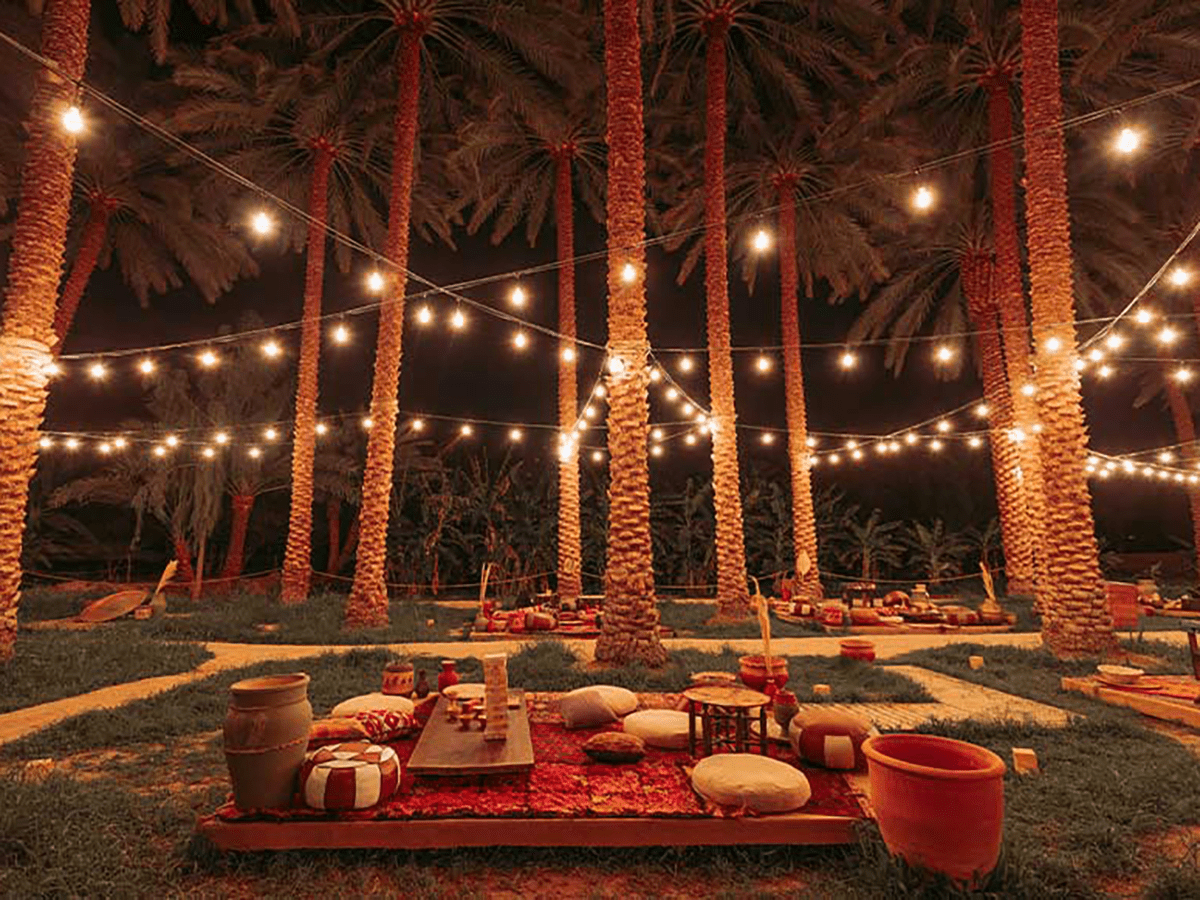
Beyond the grand buffets and fine dining experiences, some of the most meaningful Iftars take place in the heart of the community. Throughout the Kingdom, open Iftars bring people together, creating an atmosphere of warmth and unity.
Al Rajhi Mosque in Riyadh welcomes hundreds of worshippers each evening. The volunteers here distribute dates, soup, and bread, ensuring no one breaks their fast alone.
Along Jeddah’s Corniche, families lay out woven mats, sharing home-cooked meals as the sea breeze carries the sound of evening prayers. In every city, small acts of kindness, offering a stranger a cup of water, handing out dates to those rushing home before sunset are a representation of the spirit of Ramadan.
A Midnight Ritual of Flavor and Reflection
As the city quiets and the hours stretch toward dawn, a different kind of magic takes hold. Suhoor is not just about nourishment before the day’s fast. It is a moment of stillness, of connection, of enjoying the quiet before the world wakes once again.
In Riyadh, Diriyah’s Najd Village offers a Suhoor experience steeped in heritage. Here, trays of warm stews, cheeses, and freshly baked flatbreads are served in a setting that feels untouched by time.
Boulevard Riyadh City presents a more contemporary take. It has stylish cafés offering dishes that range from whipped halloumi to saffron-infused rice puddings. Along Jeddah’s coastline, floating restaurants provide a breathtaking backdrop, where Suhoor unfolds over the shimmering waters of the Red Sea.
Ramadan in Saudi Arabia never truly sleeps—it simply shifts into another rhythm. One that carries through the night and into the promise of the coming day.
Taraweeh Prayers in Saudi Arabia’s Grand Mosques
Beyond the meals, the markets, and the gatherings, Ramadan is a time of devotion. As the night deepens, mosques across the Kingdom fill with worshippers for Taraweeh prayers. This tradition brings a sense of peace and spiritual fulfillment.
At Masjid Al Haram in Mecca, millions stand shoulder to shoulder, their voices rising in unison as they recite the Quran. The sight of thousands bowing in perfect harmony is a moment that defies words, a testimony to the unbreakable bond of faith. In Madinah, the Prophet’s Mosque glows beneath the moonlight, offering a place of solace and reflection.
In Riyadh, the Imam Turki bin Abdullah Mosque stands as a symbol of the city’s spiritual heritage, where the soft murmur of prayer fills the vast hall.
Whether one takes part in the prayers or simply witnesses the devotion that unfolds, there is a feeling of belonging that lingers long after the night ends.
The Tranquility of the Desert During Ramadan
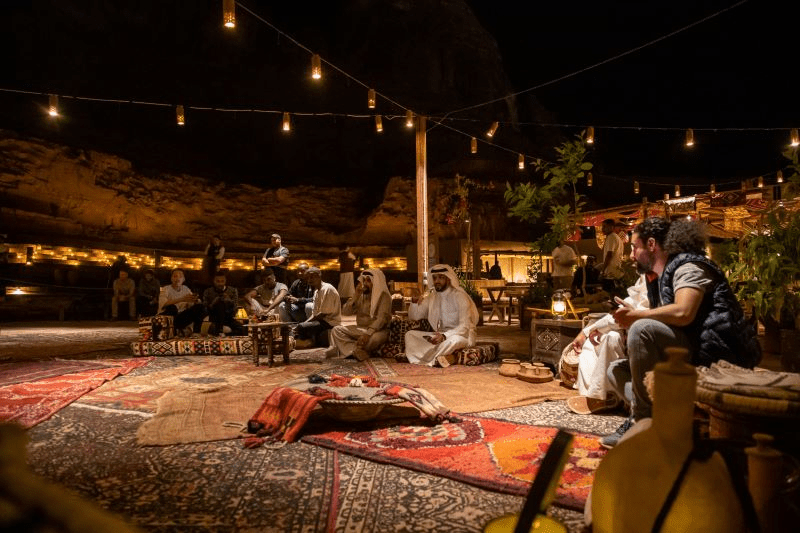
For those seeking a Ramadan experience beyond the cities, the vast landscapes of Saudi Arabia offer a sanctuary of solitude and reflection. The dunes of AlUla, the Empty Quarter, and Sharaan take on a mystical quality at night. Here, the sky stretches endlessly and time feels suspended.
In the heart of the desert, Bedouin tents welcome travelers for Iftar and Suhoor. The scent of freshly baked bread in these tents mingles with the warmth of burning embers.
Stories are shared over cups of cardamom-scented coffee, and as the stars emerge in full brilliance. There is a sense of connection not only to those around you but to something far greater.
Ramadan in the desert is an experience unlike any other. One that strips away distractions, allowing for a deeper connection to faith, nature, and the stillness within.
A Nightlife of Culture and Celebration
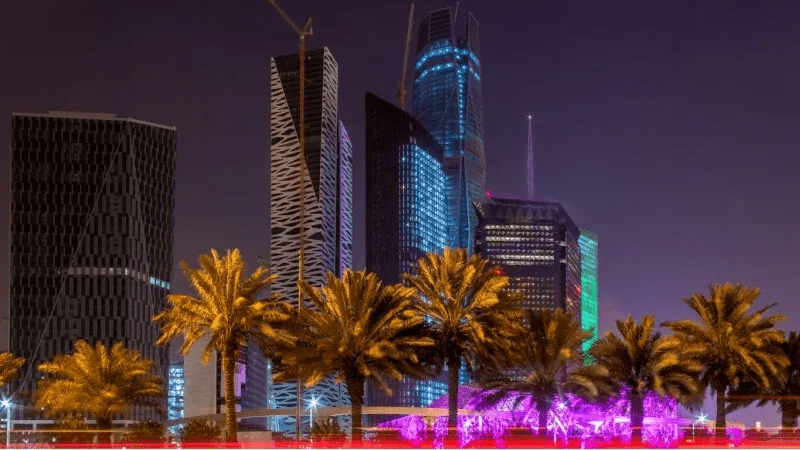
During Ramadan, as the sun sets and the fast concludes, Saudi Arabia’s cities transform into vibrant hubs of nocturnal activity. It becomes ad blend of deep-rooted traditions and contemporary entertainment.
In Riyadh, Boulevard City, a sprawling entertainment district, becomes a focal point for residents and visitors alike. Here, the evenings are animated with live performances and open-air cinemas. There’s also dining options that cater to those seeking to extend their Suhoor gatherings into the early hours.
In Jeddah, the historic Al-Balad district offers a unique nighttime experience during Ramadan. The area comes alive with cultural festivals showcasing traditional music, poetry recitals, and storytelling sessions that transport audiences through time. The narrow alleyways, illuminated by the soft glow of lanterns, lead to art installations and exhibitions that celebrate the city’s rich heritage.
A Ramadan That Stays With You
Some journeys take you to new places, and then some journeys change the way you see the world.
Ramadan in Saudi Arabia is one of those experiences. It is in the taste of the first date at sunset, in the quiet moments of prayer before dawn. It’s in the laughter that fills the souqs, and in the unspoken bonds formed through shared meals.
This is not simply about where to go during Ramadan in Saudi Arabia. It is about how to experience it in a way that stays with you long after the crescent moon fades.
FAQs
Can non-Muslims join Ramadan activities?
Non-Muslims can explore Ramadan markets, attend community Iftars, and enjoy the vibrant nightlife. Just remember to avoid eating, drinking, or smoking in public during fasting hours.
Where are the best Iftars in Riyadh?
Top spots include The Ritz-Carlton, Al Faisaliah Hotel, and Najd Village for a mix of luxury and traditional Saudi flavors.
Are restaurants open during the day?
Most remain closed until Iftar but reopen after sunset, staying open late into the night. Some hotels offer in-room dining for non-fasting guests.
What unique Ramadan experiences should I try?
Explore Ramadan souqs, witness Taraweeh prayers, join a community Iftar, and soak in the late-night festivities across the country.

